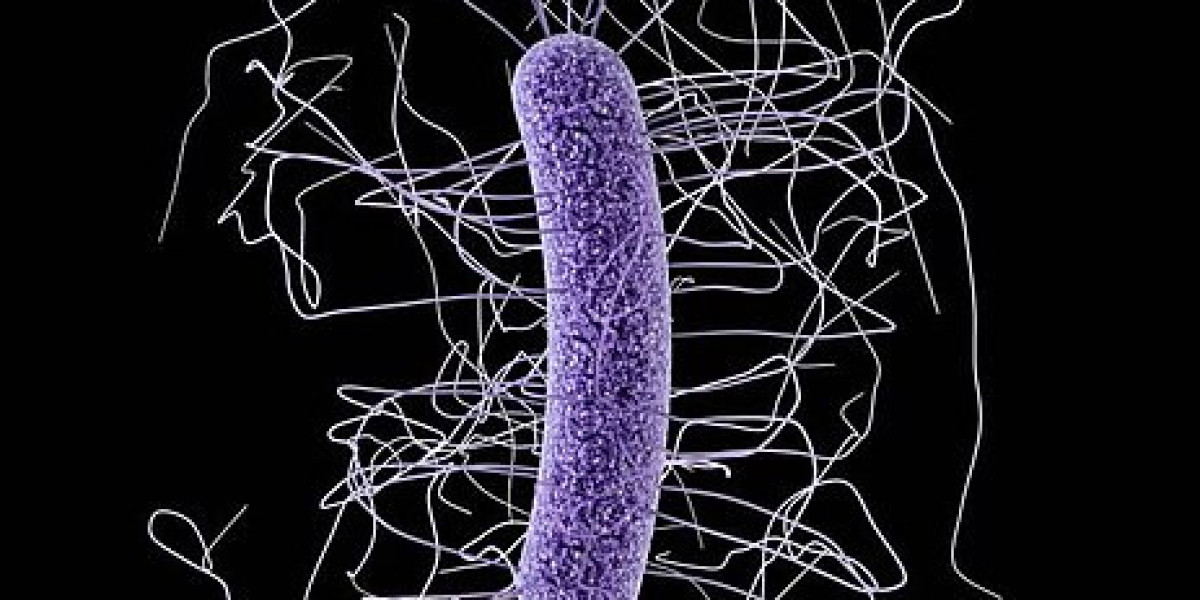Introduction
Clostridium difficile infection (CDI) remains one of the most pressing healthcare challenges in hospitals and long-term care facilities. Characterized by severe diarrhea, colitis, and potentially life-threatening complications, CDI poses significant risks, especially for vulnerable populations. Traditional antibiotic treatments have been the mainstay for managing CDI, yet their inability to prevent recurrences—largely due to disruption of the delicate gut microbiome—has spurred the development of innovative therapies. One such groundbreaking advancement is REBYOTA, a microbiome-based treatment that bridges the gap between cutting-edge science and real-world clinical practice. This article delves into REBYOTA’s active ingredient, its unique mechanism of action, clinical trial data, regulatory approvals, and market performance, including insights into REBYOTA sales and its long-term potential.
For more in-depth insights on REBYOTA’s development and future potential, download the full report @ REBYOTA Market Report.
What is REBYOTA?
REBYOTA is a first-of-its-kind fecal microbiota therapy (FMT) developed by Ferring Pharmaceuticals. Approved by the U.S. Food and Drug Administration (FDA) in 2022, this novel treatment is specifically designed for patients with recurrent CDI who have experienced multiple episodes of infection. Unlike conventional antibiotics, which often indiscriminately disrupt gut flora, REBYOTA works by restoring a balanced and diverse microbial ecosystem in the colon.
The active ingredient in REBYOTA is a meticulously screened and processed blend of live microorganisms derived from donor stool samples. This unique formulation acts as a “biological reset” for the gut, reintroducing beneficial bacteria that can outcompete Clostridium difficile. By targeting the underlying dysbiosis—the imbalance in gut microbiota—that predisposes patients to recurrent infections, REBYOTA offers a fundamentally different approach to managing CDI compared to traditional therapies.
REBYOTA Mechanism of Action (MOA)
At the heart of REBYOTA’s innovation is its mechanism of action, which centers on the restoration of a healthy microbiome. REBYOTA’s mechanism involves delivering a diverse array of live microorganisms directly into the patient’s colon via a rectal suspension. This approach not only replenishes the depleted beneficial bacteria but also helps re-establish a robust microbial community that naturally resists colonization by Clostridium difficile.
The REBYOTA active ingredient—comprising the live microbial culture—is critical to its success. By introducing this carefully calibrated microbial population, the treatment creates an environment where pathogenic bacteria struggle to thrive. Clinical studies have demonstrated that patients treated with REBYOTA experience markedly lower recurrence rates compared to those receiving standard antibiotic therapies. The therapy’s design directly targets the microbiome disruption that typically follows antibiotic treatment, reinforcing the gut’s natural defenses and offering a sustainable solution to recurrent CDI.
For more detailed insights and the latest updates on REBYOTA, visit the REBYOTA Market update.
Clinical Efficacy and Safety
The journey of REBYOTA from laboratory research to clinical application has been supported by robust clinical trials. In pivotal Phase 3 trials—often referenced as key REBYOTA Clinical Trials—patients treated with REBYOTA exhibited a 70.6% success rate in preventing CDI recurrence at the eight-week follow-up, a significant improvement over control groups receiving standard care. These trials have not only underscored the efficacy of the treatment but have also provided critical insights into its safety profile.
Patients have reported substantial improvements in gut health and overall well-being after receiving REBYOTA. Although some mild adverse effects, such as abdominal discomfort and bloating, have been observed, these issues tend to be transient and resolve without further intervention. The rigorous screening process for donor stool samples and the careful formulation of the REBYOTA active ingredient ensure that safety remains paramount. With continuous monitoring and adherence to stringent regulatory standards, REBYOTA stands as a testament to the success of microbiome-based interventions in modern medicine.
REBYOTA Cost and Accessibility
Adopting cutting-edge treatments in healthcare invariably raises questions about cost and accessibility. REBYOTA, as an innovative and specialized therapy, is priced at approximately $9,000 per dose. While this figure may seem substantial in comparison to conventional antibiotics, it is essential to view the cost in the context of long-term savings. By effectively reducing hospital readmissions, complications, and the overall burden on the healthcare system, REBYOTA presents a cost-effective alternative for managing recurrent CDI.
Insurance providers are increasingly recognizing the clinical benefits of REBYOTA, and many are beginning to cover the treatment for patients who have experienced multiple recurrences. Additionally, financial assistance programs have been established to ensure that cost does not become a barrier to accessing this life-changing therapy. Healthcare professionals are encouraged to discuss available payment options and insurance coverage with their patients to promote broader adoption of this groundbreaking treatment.
For further insights and detailed research on this breakthrough treatment, visit REBYOTA insights.
REBYOTA Sales and Market Performance
Since its FDA approval in 2022, REBYOTA has experienced a remarkable uptake in the marketplace. The impressive REBYOTA sales figures serve as a strong indicator of its growing acceptance within the medical community. In its first year on the market, REBYOTA generated over $100 million in sales—a testament to its clinical efficacy, innovative approach, and the increasing awareness of microbiome health. These REBYOTA sales numbers not only reflect robust market demand but also underscore the treatment’s potential to transform the landscape of CDI management.
Several factors have contributed to this market success. Positive outcomes from REBYOTA Clinical Trials, combined with increasing recognition of the role of the gut microbiome in health and disease, have propelled its adoption among healthcare providers. Strategic partnerships between Ferring Pharmaceuticals and leading healthcare institutions have further facilitated the distribution and accessibility of REBYOTA. As more physicians turn to microbiome-based therapies, the sustained growth in REBYOTA sales is anticipated to set new benchmarks for innovation in infectious disease treatment.
Future Outlook and Innovations
The approval of REBYOTA represents a significant milestone in the evolution of microbiome-based medicine. However, the journey is far from over. Ongoing research and development efforts are focused on refining and expanding the applications of REBYOTA. Scientists are exploring methods to further optimize donor screening processes, enhance the diversity of bacterial strains in the REBYOTA active ingredient, and even develop oral formulations that could simplify administration. Such innovations promise to make microbiome therapies even more accessible and user-friendly in the future.
The success of REBYOTA has also spurred interest in applying similar microbiome restoration techniques to other challenging conditions. Researchers are now investigating the potential of these therapies in managing inflammatory bowel disease (IBD), irritable bowel syndrome (IBS), and even antibiotic-resistant infections. As the scientific community continues to unravel the complexities of the gut microbiome, it is expected that new treatment paradigms will emerge, further blurring the line between science and clinical practice.
For additional insights on REBYOTA’s transformative potential, please download the full REBYOTA report.
Conclusion
REBYOTA is more than just a new treatment option for Clostridium difficile infection—it represents a paradigm shift in how we approach infectious diseases that are rooted in microbiome imbalances. By leveraging the power of its unique active ingredient and a robust mechanism of action centered on microbiome restoration, REBYOTA offers a novel and effective solution for preventing CDI recurrences. The compelling results from REBYOTA Clinical Trials, combined with its favorable safety profile and regulatory approvals, underscore its transformative potential in modern healthcare.
While the cost of REBYOTA remains a key consideration, the overall benefits—ranging from reduced hospital readmissions to improved patient outcomes—make it a promising investment in long-term health. The impressive REBYOTA sales figures further reflect the treatment’s growing acceptance and underscore its role in redefining infectious disease management. As ongoing research continues to innovate and refine microbiome therapies, the future holds exciting possibilities for expanding the reach and efficacy of treatments like REBYOTA.
In bridging the gap between science and practice, REBYOTA not only addresses an unmet medical need but also sets the stage for a new era in microbiome-based medicine. With continued advancements and increasing awareness, REBYOTA is poised to transform the clinical landscape, offering hope and improved quality of life for patients suffering from recurrent CDI worldwide.
For those looking to explore this breakthrough treatment more, download the full REBYOTA Insights Report.
Related Reports
- Clostridium Difficile Infections Market Insight, Epidemiology And Market Forecast
- Clostridium Difficile Infections Patient Pool Analysis, Market Size and Market Forecast APAC
- Clostridium Difficile Infections - Epidemiology Forecast
About DelveInsight
DelveInsight is a leading business Healthcare consultancy and market research firm specializing in life sciences. It assists pharmaceutical companies by offering comprehensive, end-to-end solutions to improve their performance. Access all our healthcare and pharmaceutical market Competitive Intelligence Solutions.



